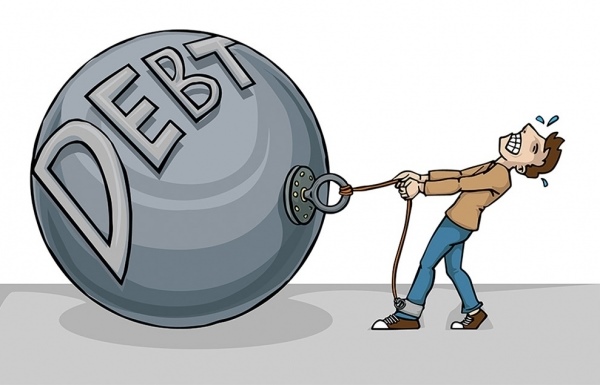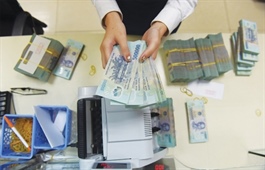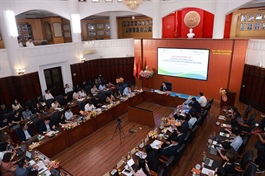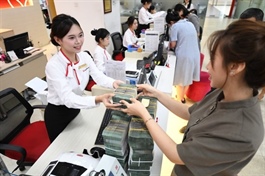NPL ratio rise puts pressure on banking
NPL ratio rise puts pressure on banking
With targets set for credit growth and GDP, the banking system requires a comprehensive legal overhaul for resolving non-performing loans.
Financial reports as of March 31 from 28 banks that have disclosed data show that total outstanding loans exceeded $492 billion, marking nearly a 4 per cent increase compared to the beginning of the year.

NPL ratio rise puts pressure on banking, Photo: Shutterstock |
Concurrently, non-performing loans (NPLs) also rose in line with the credit growth. The total NPLs reported by the 28 banks at the end of Q1 reached $10.65 billion, up nearly 16 per cent from the start of the year.
Do Thanh Tung, deputy analysis director at Viet Dragon Securities Corporation, stated that credit growth since the beginning of the year for listed banks reached 3.76 per cent by the end of Q1, compared to 3.93 per cent for the entire banking system.
This reflects a positive recovery in capital demand compared to the same period in 2024 at 1.42 per cent.
“With this performance, the banking sector has achieved about a quarter of the State Bank of Vietnam’s (SBV) credit growth target of 16 per cent for the year,” Tung said. “Deposit growth at listed banks by the end of Q1 was 3.3 per cent, with customer deposits increasing 2.4 per cent, and growth in mobilisation through valuable papers reaching 11 per cent. Deposit growth remains below credit growth but the gap has narrowed compared to the full year 2024.”
Overall, Tung noted that the average term of mobilised capital tends to increase due to bond issuance aimed at raising Tier 2 capital at some banks, along with the issuance of certificate of deposits to boost competitiveness in attracting current account savings account deposits.
“The industry’s net interest margin declined by 30 basis points from the previous quarter, falling to 3.05 per cent, pressured by a 25 basis point decrease in asset yields and a 5 basis point increase in funding costs compared to the prior quarter,” Tung explained. “This trend indicates that competition in loan interest rates remains intense, driven by the rollout of numerous preferential credit packages following the government’s directive to reduce lending rates.”
The rising NPL ratio remains a significant pressure point for the banking sector. The government has set a target GDP growth of at least 8 per cent, aiming to create momentum and impetus for the country to achieve double-digit growth.
The SBV has identified several key reasons behind the recent rise in NPLs. These include persistent global economic risks and domestic challenges, which have been exacerbated by unpredictable international developments and severe natural disasters. Another contributing factor is the sluggish recovery in the stock, bond, and real estate markets. Moreover, the debt trading market remains underdeveloped, falling short of expectations.
The SBV also pointed out that some provisions of Resolution No.42/2017/QH14 have yet to be fully codified into law, which continues to hamper debt recovery efforts by credit institutions and asset management companies. In addition, the governance capacity of some credit institutions remains insufficient compared to their scale, growth pace, and risk exposure.
“In practice, the 2024 Law on Credit Institutions has legalised Resolution 42, except for three provisions concerning the rights to retain collateral assets, collateral sequestration, and the return of evidence in criminal cases,” explained Governor of the SBV Nguyen Thi Hong. “However, after the law’s enforcement, difficulties in NPL resolution remain evident, affecting efforts to reduce interest rates and provide credit to businesses and individuals.”
Tran Thi Khanh Hien, research head at MB Securities, said unpredictable US tariff policies have begun impacting Vietnam’s economy, most notably with a sharp decline in new orders, causing the Purchasing Managers’ Index for manufacturing to fall to a two-year low.
“This could lead to declines in industrial production and exports in the coming months. Currency risk is a concern as the US Federal Reserve’s cautious stance on rate cuts, due to tariff uncertainties possibly reigniting inflation, may support the strength of the USD,” she added.
Actual US tariff rates to be applied to Vietnamese goods have not been confirmed, so the precise impact on the economy remains unclear. However, an SSI analyst remarked that legalising the provisions of Resolution 42 is a crucial step to resolving difficulties related to NPL handling in Vietnam’s banking sector, especially as the system’s problematic assets, including bad debts, and other potential bad debts, have increased by about 7 per cent.
“With the government setting relatively high targets for credit and GDP growth, we believe the banking system needs a comprehensive legal framework for bad debt resolution, rather than a temporary pilot with a fixed timeframe as before,” said the SSI expert.
- 15:07 28/05/2025


























